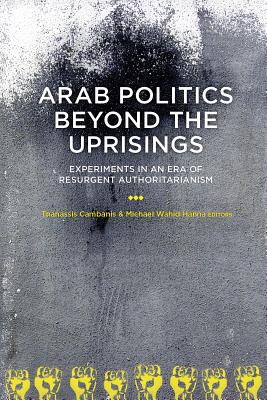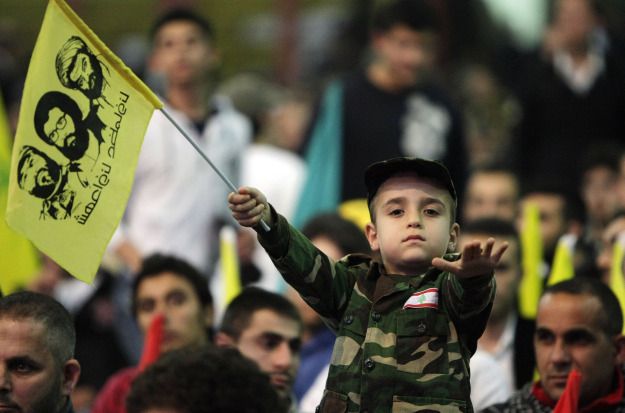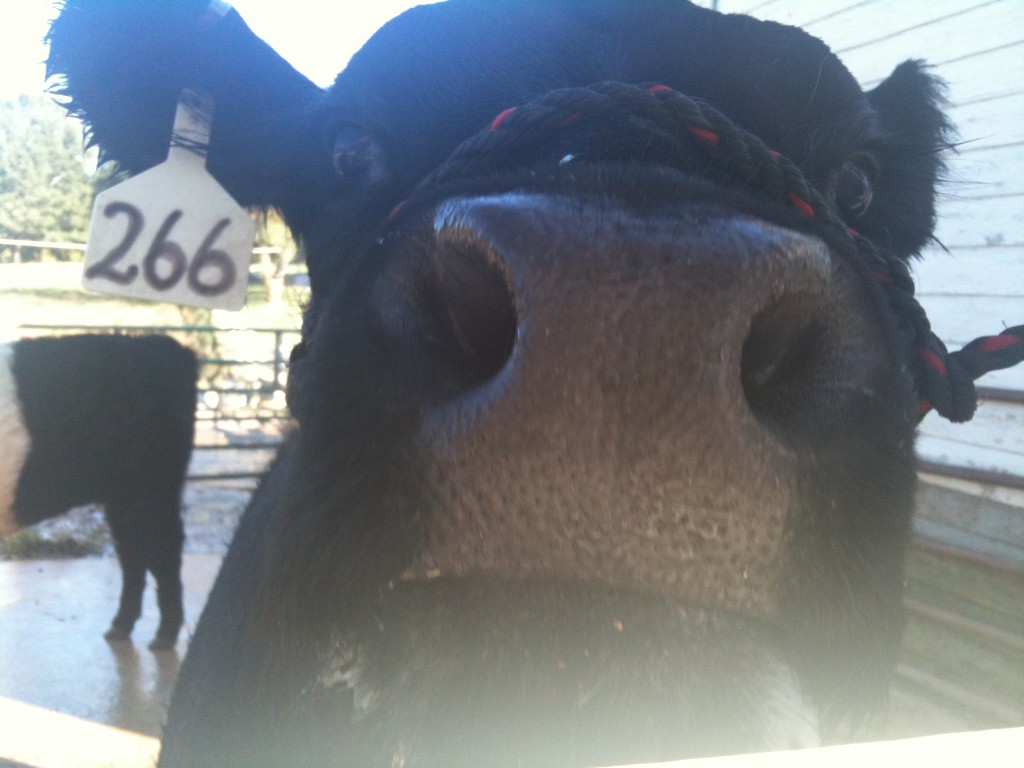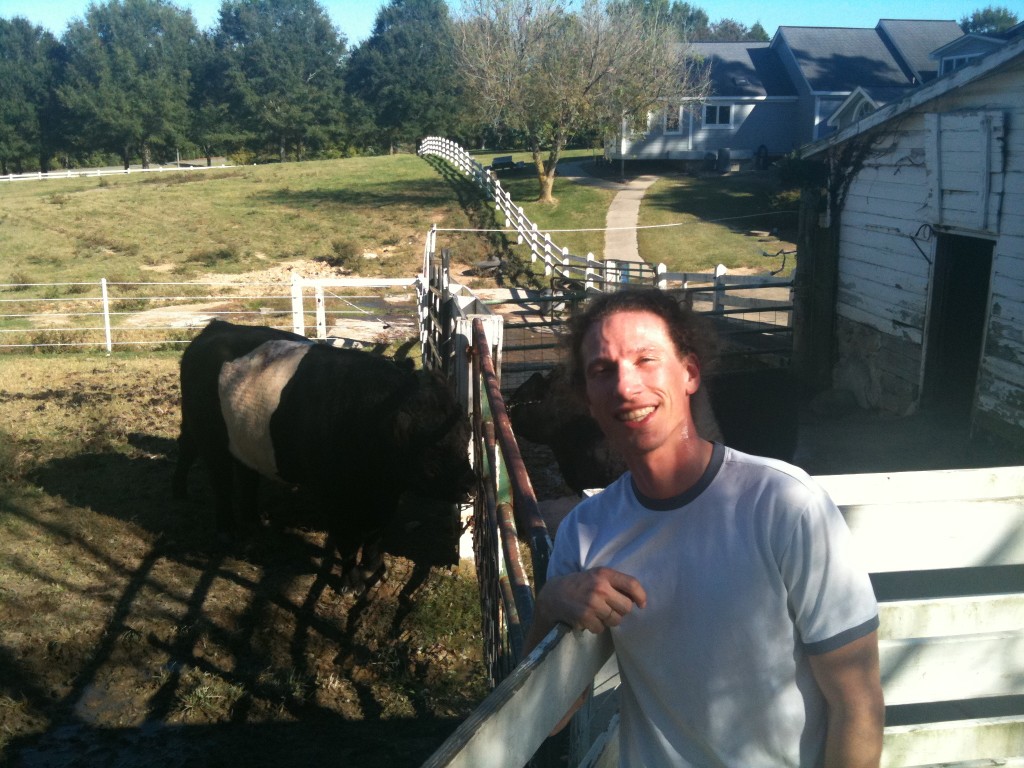New Book: Arab Politics Beyond the Uprisings
Our book is in print, available from the publisher beginning May 23. You can already order it from bookstores. We’re very proud of this collaborative effort. It represents a lot of creative thinking about politics, and the ongoing efforts at change that have survived despite the short-term success of dictatorships. We describe the work on the back cover:
Political experimentation and invention survive in unlikely places years after resurgent authoritarianism interrupted the Arab revolts. Despite violent conflict and state repression, attempts to build new institutions and ideologies continue outside the confines of traditional opposition politics.
In this volume, established researchers, new scholars, and active participants explore political initiatives in other realms: media, artists’ collectives, rebel enclaves, neighborhood councils, fledgling citizen campaigns, and elsewhere.
With rich ethnographic detail, these studies pay special attention to regional dynamics, cross-border learning, and the intellectual history of ideas central to the uprisings. They reveal an unresolved struggle between resilient authoritarian structures and alternative centers of political power.
Contributors include Nathan J. Brown, Benjamin Helfand, Monica Marks, Michael Stephens, Khaled Mansour, Sima Ghaddar, Karim Ennarah, Ursula Lindsey, Jonathan Guyer, Sultan Sooud Al Qassemi, Laura C. Dean, Marc Lynch, Samer Abboud, Yasser Munif, Aron Lund, Sam Heller, Cilja Harders, Dina Wahba, and Asya El-Meehy.
You can read my introduction to the book online. If you want to read it all, you can order online. Support local booksellers by ordering your copy via IndieBound. Or else, try Amazon or the publisher, Brookings.
Ian Masters Show
Ian had me on his show on Wednesday to discuss the Special Tribunal for Lebanon indictments. He’s particularly interested in the possibility for a regional war now, provoked by an Israeli attack on Iran, or by the Assad regime and Hezbollah because of the domestic threats they face. My view is that Hezbollah would be unlikely to start a war with Israel on behalf of one of its foreign sponsors – Syria or Iran – but it might fear the collapse of the Assad regime could threaten Hezbollah’s military viability. I also believe the Tribunal indictments don’t pose a serious challenge to Hezbollah anymore. (I’ve written an extended version of this argument which should be published soon in The National Interest.)
You can listen to the Ian Masters show here.
PTD on Book TV
C-SPAN’s Book TV is airing a talk I gave at the New York Public Library in February about the historical trajectory of Hezbollah in the context of the rising tide of Arab revolutions. As change-fever spreads across the Arab world, we’ll begin to see answers emerging to the fundamental questions I explore here: What shape will revolutionary politics take as they’re institutionalized in a newly dynamic Arab political space? How will Hezbollah’s rejectionist “Resistance Axis” fare once it has to compete in the marketplace of ideas with a real alternative?
Fresh Air
Terry Gross interviewed me on Fresh Air today about the events in Egypt and their potential to create new space in Arab politics. From the Fresh Air website:
All of our assumptions about the Arab world have been turned on their heads in the past month, says veteran Middle East correspondent Thanassis Cambanis.
“Everything that the experts say and everything that the activists and politicians have taken for granted for a generation, at least, is really off the table,” he tells Fresh Air‘s Terry Gross. “What’s been happening, first in Lebanon and then in Tunisia and now in Egypt and who knows further afield, suggests that new forces have been unleashed and we have no idea where they might lead and what new dynamics they might create.”
On Wednesday’s Fresh Air, Cambanis puts what has been going on in Egypt in a historical context — and explains the rising influence of the political party Hezbollah in the region. He says the recent explosion of popular anger and activism in Egypt opens up the possibility for a new political movement — one not endorsed by autocratic regimes or rooted in Hezbollah’s Islamist ideology.
“There are a lot of people, both dispossessed and powerful, who want dignity but they don’t necessarily want endless war — which is what the Hezbollah school of thought advocates,” he says. “I think they would be hungry for, and very receptive to, an Egypt-centered political movement that talks about Arab empowerment but not endless war.”
Haaretz reviews APTD
The esteemed weekend Haaretz has reviewed A Privilege to Die, recommending the book to Westerners, and in particular Israelis, because it contains insights into Hezbollah that might well make readers uncomfortable. (Disclosure: the reviewer, mystery writer Matt Beynon Rees, is a friend.) He compares my book to David Hirst’s Beware of Small States.
The essence of the Shi’ite organization’s success, as Cambanis sees it, is its ability to carve out clear answers to Lebanon’s vital national questions. That gives it a big advantage over the cloudy mass of Lebanon’s other vicious sectarian parties. One voter tells Cambanis that his choice of Hezbollah was based on the fact that he was “sick of all these other assholes.”
Read the rest of the review here.
http://www.haaretz.com/culture/books/middle-east-into-the-heart-of-hezbollah-1.336038
WBUR’s Here & Now
Robin Young brought me into the studio on Tuesday to talk about my column in The Boston Globe about “engagement hawks,” the pragmatists who argue that America needs a more coherent strategy to deal with terrorist-designated groups and other enemies.
Faith Middleton Show
Faith Middleton discussed Hezbollah with me on her show on Monday, broadcast on WNPR in Connecticut. You can listen to our conversation here.
Hitchens on Hezbollah
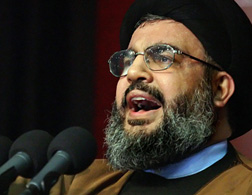 Christopher Hitchens on Slate laments Hezbollah’s renaissance in Lebanon. He blames two main factors: Israel’s “crass intervention in Lebanon in 2006,” and the United States unwilligness to take an interest in Lebanon. To his list I’d add a few other reasons: the absence of a coherent and compelling alternative to the “Axis of Resistance”; massive corruption and/or incompetence among so-called moderates; and the puzzling failure of non-militant movements to use religion to mobilize mass support.
Christopher Hitchens on Slate laments Hezbollah’s renaissance in Lebanon. He blames two main factors: Israel’s “crass intervention in Lebanon in 2006,” and the United States unwilligness to take an interest in Lebanon. To his list I’d add a few other reasons: the absence of a coherent and compelling alternative to the “Axis of Resistance”; massive corruption and/or incompetence among so-called moderates; and the puzzling failure of non-militant movements to use religion to mobilize mass support.
Very kindly, Hitchens also mentions A Privilege to Die:
A depressingly excellent book on the contours of that new reality is provided by Thanassis Cambanis. A Privilege To Die lays out the near-brilliant way in which Hezbollah manages to be both the party of the downtrodden and the puppet of two of the area’s most retrograde dictatorships. Visiting Beirut not long after Hezbollah had been exposed as an accomplice to Syria and as the party that had brought Israel’s devastating reprisals upon the innocent, I was impressed, despite myself, by the discipline and enthusiasm of one of Nasrallah’s rallies in the south of the city. Cambanis shows how the trick is pulled. With what you might call its “soft” power, the Party of God rebuilds the shattered slums, provides welfare and education, and recruits the children into its version of a Boy Scout movement, this time dedicated to martyrdom and revenge. With its “hard” power, it provides constant reminders of what can happen to anyone who looks askance at its achievements. Its savvy use of media provides a continual menu of thrilling racial and religious hatred against the Jews. And its front-line status on Israel’s northern frontier allows it to insult all “moderate” regimes as poltroons and castrati unwilling to sacrifice to restore Arab and Muslim honor. Many Sunni Arabs hate and detest Hezbollah, but none fail to fear and thus to respect it, which Nasrallah correctly regards as the main thing.
On “The World”
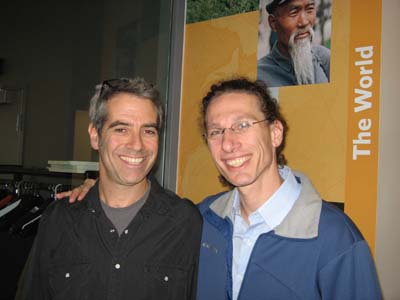 One of my favorite radio programs, The World (from WGBH, the BBC and PRI), had me on last Friday to talk about why people join Hezbollah and what the Party of God means to its million-plus followers. Marco Werman asked great questions, leading to a discussion of people in Hezbollah, and focusing again on Faris Jamil, who left Manhattan because of all the crime and drugs.
One of my favorite radio programs, The World (from WGBH, the BBC and PRI), had me on last Friday to talk about why people join Hezbollah and what the Party of God means to its million-plus followers. Marco Werman asked great questions, leading to a discussion of people in Hezbollah, and focusing again on Faris Jamil, who left Manhattan because of all the crime and drugs.
“I couldn’t raise my kids there!” Faris Jamil told me. Instead he moved to Aita al Shaab in south Lebanon, about a mile from Israeli border. Certain war seemed a small price to pay to raise his children in the cradle of the Islamic Resistance.
From an American perspective, it might not make sense why a successful businessman like Faris would prefer the cycles of destruction in southern Lebanon to the prosperity of New York. A big part of the explanation is also goes a long way toward explaining Hezbollah’s appeal: personal identity.
Hezbollah’s Boy Scouts
Where can you learn how to brush your teeth well, tie a knot, articulately recite a Hassan Nasrallah speech, and if you’re lucky, how to join the war against Israel? The answer is the Mahdi Scouts, Hezbollah’s contribution to the international scouting movement. Drawing liberally on Western scout movements as well as the Iranian revolution, Hezbollah has put together a dynamic movement that effectively instills its ideology and tactics in the very young. The Mahdi Scouts showcase Hezbollah’s dual approach — building community through religion and at the same time, mobilizing their devotees through an appeal to fight a unifying enemy.
This extract from A Privilege to Die published today in Foreign Policy describes the day I spent with a Mahdi Scout troop in Khiam.
Mohammed Dawi, the sweaty and plump scout leader, met us at the entrance to Khiam town. He was a redhead with freckles, and looked more Irish than Lebanese. The younger scouts were waiting in the basement of a high school a mile or so from the prison. The troop leader led them in a chant of welcome. Most of them wore blue shirts with epaulets, white scarves, and oversized badges featuring a photograph of a scowling Ayatollah Khomeini. Two boys who looked about ten wore full military fatigues.
It seemed the day’s activities had been planned with my visit in mind. The children marched downstairs single file and broke up by age group. The “buds,” six or seven years old, assembled for a puppet show, emceed by a man in a worn panda suit who sang lines from Nasrallah’s speeches. The “sprouts,” eight to ten years old, sat around tables at the rear of the room drawing pictures, their ideas inspired by a chubby and soft-spoken young woman named Malak Sweid. She was a graphic design student and zealous party apparatchik.
In “guided drawing,” the kids drew pictures of Israelis weeping in defeat, denoted by Stars of David on their helmets, or of Israelis stepping on Lebanese. Other children, with evident direction by Malak, depicted crosses and crescents, symbolizing the Lebanese Christians and Muslims, chained by vicious Stars of David. Other pictures spoke less to the conflict with the Jews than to Islamic values. One child’s picture showed women in low-cut gowns holding martini glasses and cigarettes in old-fashioned holders. “Smoking Harms Your Health” was the title.
The Best Audience
Last weekend I gave a talk at McIntyre’s Fine Books in Fearrington Village, near my hometown of Chapel Hill. Fearrington Village is known locally for its Belties, a characteristic species of striped cow. They made a fine audience when I described my encounters with Hezbollah. Later, after I ate shrimp and grits then took a meandering run through Fearrington’s retirement condos, the Belties were still there waiting, patient and bovine, by the bookshop. Very affirming, serene creatures.
Privilege to Die in Boston this weekend
My first appearance in Boston is coming up this Saturday as part of the Boston Book Fair. Noah Feldman from Harvard Law is moderating a panel called “Global Hot Spot: the Middle East’ featuring Nir Rosen, Haleh Esfandiari, and me.
I hope to see all my Boston-area friends at noon on Saturday at the Trinity Church Forum, 206 Clarendon Street, Boston.
The Human Face of Hezbollah
![]() David Shribman reviewed A Privilege to Die in today’s Boston Globe. It’s an honor to be reviewed by such a heavyweight (David won a Pulitzer for his Washington reporting at the Globe, and now edits the Pittsburgh Post-Gazette; I don’t know him personally.)
David Shribman reviewed A Privilege to Die in today’s Boston Globe. It’s an honor to be reviewed by such a heavyweight (David won a Pulitzer for his Washington reporting at the Globe, and now edits the Pittsburgh Post-Gazette; I don’t know him personally.)
From the review:
Where some writers talk about the Arab streets, Cambanis has walked them. Along the way he encountered warriors and hospital workers, polished intellectuals and women who sell nuts by the curb, ideologues and theologians, those who engage in small acts of resistance and those who prosecute total war of the most brutal sort. …
What becomes clear is that the key to Hezbollah is its ability to spread virtue along with the violence. It promises, for example, to restore communities — homes and businesses — to their original conditions after each episode of conflict. “Hezbollah needed to keep [its] soft supporters happy,’’ Cambanis writes, “and to do so it needed to deliver bricks and mortar along with its ideology.’’
On The State of Things
As I’d hoped, my mother thought my talks in Chapel Hill and Fearrington Village were excellent. She found me very articulate. There were some other, perhaps more unexpected, surprises on the homecoming leg of my book tour. My sixth-grade teacher, Mr. Greenlund, led an intimidating phalanx of educators from my past (among them Ms. Brooks; Mr. Baldwin; Profs. Kramer, Gingher, and Betts).
And I got to go on what for me is the original public radio station: WUNC. You can hear the segment with The State of Things host Frank Stasio here. (Thanks, Amber!) North Carolina provided the perfect venue to explore the remarkable tactical parallels between Hezbollah’s approach to social organization and the rise of evangelical mega-churches. I don’t mean to stretch the comparison too far, but my encounters with evangelical movements in North Carolina showed me an early, effective model that paired social activities with religious educations, proselytizing with community service, and faith with political activism.
Rapture, Resistance, Revolution
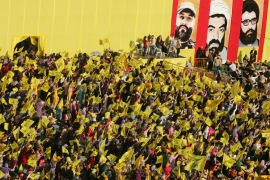 In his review of A Privilege to Die for Global Post my friend the mystery writer (and veteran Middle East hand) Matt Beynon Rees calls attention to one the main endeavors of the book: to place front and center the regular Joes and Janes (or Ranis and Farahs) that have elevated Hezbollah into a perennial and expanding trend-setting militant movement.
In his review of A Privilege to Die for Global Post my friend the mystery writer (and veteran Middle East hand) Matt Beynon Rees calls attention to one the main endeavors of the book: to place front and center the regular Joes and Janes (or Ranis and Farahs) that have elevated Hezbollah into a perennial and expanding trend-setting militant movement.
Hezbollah’s rank-and-file, the footsoldiers and volunteers, aren’t always scheming against Israel or dreaming of perpetual war; they’re also strivers looking for better jobs, education for their kids, and a more honest relationship with God.
Because of its growth and success on the battlefield, the Party of God itself often takes on mythic status. Outsiders sometimes impute far greater cunning, skill and sophistication to Hezbollah than its occasionally clunky and authoritarian behavior merits.
Matt re-tells one of the more amusing encounters I had with Hezbollah while reporting the book:
Unsatisfied with one of his stories, Hezbollah officials denied his book the cooperation of the Party of God (“Hizb” means party in Arabic; “Allah” you probably heard of already.) He describes one party functionary telling him, “‘You can’t possibly write a book about Hezbollah without the party’s permission, right? You’ll have to move on to another project?’ Like many Hezbollah officials she overestimated the party’s ability to control or manipulate a foreigner like me and she thought the prospect of future access would tempt me to relinquish writing this book.”
Carolina homecoming
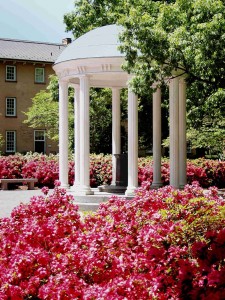 No, not that kind of homecoming.
No, not that kind of homecoming.
I’m returning to my old stomping grounds this week to visit my mother and while I’m at it, to talk about Hezbollah in Chapel Hill, Durham and Fearrington Village. These appearances complete a circle.
The last time I was in Chapel Hill as a working journalist was in 1996, as editor of The Daily Tar Heel, muckraking about developers, the BCC, the mayor’s race, NIMBY soccer moms, and “town-gown relations” (who came up with that horrifying cliche?).
Now I’m back doing the same thing, at somewhat greater length and I hope with a sharper capacity to entertain. The subjects aren’t all that different: Islamism, guerilla war, Middle Eastern politics, NIMBY soccer moms, and “Arab-Israeli relations.”
7 p.m., Thursday, Oct. 7, Flyleaf Bookshop, Chapel Hill.
7 p.m., Friday, Oct. 8, Regulator Bookshop, Durham.
11 a.m., Saturday, Oct. 9, McIntyre’s Fine Books, Fearrington Village.
Tribunal bedeviling Hezbollah
 In the kind of notoriety that really excites a geek like me, my favorite blogger on Lebanon has interviewed me about A Privilege to Die. Qifa Nabki talked to me about what it is, exactly, that I’m writing and arguing about Hezbollah, and delves into some of his favorite topics – like Hezbollah’s influence on the wider Arab world and the social-ideological recipe that distinguishes Hezbollah from other mass-mobilization Islamist movements.
In the kind of notoriety that really excites a geek like me, my favorite blogger on Lebanon has interviewed me about A Privilege to Die. Qifa Nabki talked to me about what it is, exactly, that I’m writing and arguing about Hezbollah, and delves into some of his favorite topics – like Hezbollah’s influence on the wider Arab world and the social-ideological recipe that distinguishes Hezbollah from other mass-mobilization Islamist movements.
He asks how Hezbollah might respond if the International Special Tribunal investigating the 2005 murder of former Lebanese Prime Minister Rafik Hariri were to indict some Hezbollah members.
During my reporting trip to Lebanon in September I was surprised by Hezbollah’s uncompromising position on this issue. Party officials whom I interviewed echoed their leader Hassan Nasrallah’s absolutist stance: Hezbollah wouldn’t turn over any members, Hezbollah wouldn’t even recognize the Tribunal’s authority, and Hezbollah would ask the rest of the Lebanese government to adopt Hezbollah’s position.
If Hezbollah sticks to its guns on this issue, so to speak, it could quickly escalate into internal violence. During the crisis from 2006 to 2008, Hezbollah could argue that it was willing to negotiate so long as the other political parties in Lebanon were willing to give Hezbollah the one-third of power it was due demographically and by its share of seats in parliament. In the event of a Tribunal indictment of Hezbollah operatives, however, Hezbollah will find itself in a complicated position. If the indictment presents compelling evidence, Hezbollah will find its pure image substantially tarnished. And if Hezbollah is willing to withdraw from the government and go to war against it, rather than surrender any indicted members, it will risk alienating a broad segment of the Lebanese public that until now has supported Hezbollah’s Islamic resistance project, or at least, not stood in its way.
PTD in DC Sunday
I’ll have two public events in Washington, DC. If you’re in the area, I’d love to see you at either one. I’ll report back here on the Elliott Abrams panel, which will be live webcast at the CAP website.
5 p.m., SUNDAY, October 3: Politics & Prose (5015 Connecticut Avenue NW).
12 p.m., Thursday, September 30: Center for American Progress (1333 H Street NW). Brian Katulis moderates a discussion between me an Elliott Abrams from the Council on Foreign Relations.
NBC’s Today Show visits Mleeta
On Friday morning, I appeared on NBC’s Today Show in this spot on the Hezbollah park in Mleeta. The show visits Hezbollah’s new theme park about the Islamic resistance, the first permanent Hezbollah museum/tourist attraction.
CSM reviews PTD
Rayyan Al-Shawaf reviews A Privilege to Die in the Christian Science Monitor. He writes:
In 2006, Hezbollah launched an unprovoked attack on Israel, which retaliated massively. This war and its aftermath set the stage for the author’s searching probe into the hearts and minds of Hezbollah’s rank and file. In prose that is often eloquent yet earthy, indicative of scholarly erudition as well as a storyteller’s flair for capturing the complexities of human psychology, Cambanis describes the seemingly contradictory impulses he discovers. Consider the case of 20-something Aya Haidar, who longs for martyrdom – preferably in the throes of the soon-to-return Mahdi’s (Messiah’s) war against infidels – but simultaneously wants to marry the man she loves and start a family. Observes Cambanis: “She was a Mahdist, a Hezbollah cadre, a schoolteacher fresh out of college, and a young girl in love, rolled into one bristling ball of energy.”
He goes on to argue that the book underestimates the scope of Shia dissatisfaction with and Sunni fury toward Hezbollah, a “chink in the party’s armor” that suggests Hezbollah has at most one more war left in it. I think Rayyan (whom I don’t know personally) is right to call attention to the growing frustration with Hezbollah. On my most recent reporting trip to Lebanon in September, I found the country more polarized than ever: Hezbollah’s supporters bristling, and its detractors less sympathetic than ever toward the Party of God’s militarism.
What we can’t predict is whether another war will conclusively diminish Hezbollah, as Rayyan writes, or whether it will once again restore the party’s luster and dominant position, as it did after the 2006 war, to the surprise of so many people.
